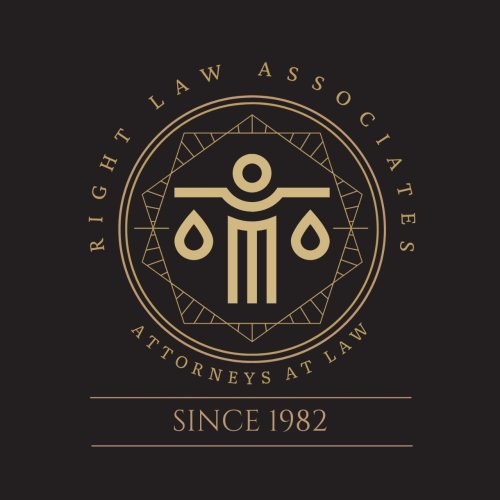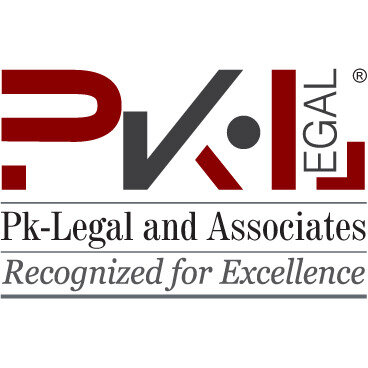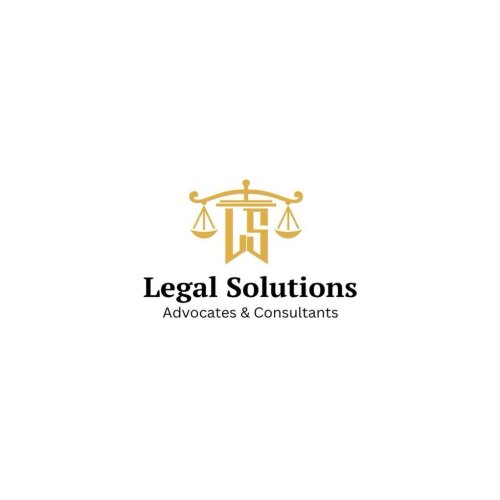Best Nonprofit & Charitable Organizations Lawyers in Rawalpindi
Share your needs with us, get contacted by law firms.
Free. Takes 2 min.
List of the best lawyers in Rawalpindi, Pakistan
About Nonprofit & Charitable Organizations Law in Rawalpindi, Pakistan
The landscape of nonprofit and charitable organizations in Rawalpindi, Pakistan, is a vibrant one, acting as a critical support system in various sectors such as education, health, poverty alleviation, and more. In Pakistan, nonprofit organizations (NPOs) can be registered under several legal frameworks, including the Societies Registration Act of 1860, the Voluntary Social Welfare Agencies Ordinance of 1961, and the Trust Act of 1882, among others. These organizations play a pivotal role in societal development and are governed by specific regulations to ensure their operations align with national goals and legal standards.
Why You May Need a Lawyer
Navigating the intricacies of establishing and managing a nonprofit or charitable organization in Rawalpindi can present numerous legal challenges. You may need a lawyer if you are:
- Setting up a new organization and require guidance on the appropriate legal structure.
- Facing issues with registration compliance or amendments.
- Seeking to understand tax benefits and compliance with tax laws.
- Drafting or reviewing legal documents such as bylaws and contracts.
- Dealing with employment and volunteer-related issues.
- Ensuring that fundraising and financial practices comply with local laws.
- Experiencing disputes that require mediation or representation.
Local Laws Overview
The legal framework for nonprofits in Rawalpindi, Pakistan, comprises several important regulations:
- The Societies Registration Act, 1860: Governs the registration and regulation of societies or associations formed for charitable purposes.
- The Voluntary Social Welfare Agencies Ordinance, 1961: Applies to organizations seeking registration as welfare bodies.
- The Trust Act, 1882: Provides legal guidelines for trusts formed for charitable purposes.
- The Income Tax Ordinance, 2001: Offers tax exemptions to qualifying nonprofit organizations, contingent upon compliance with specific criteria.
- The Anti-Money Laundering Act, 2010: Sets provisions to ensure financial transparency and prevent misuse of funds within nonprofit operations.
Frequently Asked Questions
1. What is the process to register a nonprofit organization in Rawalpindi?
Registration involves choosing a suitable legal structure, preparing the required documentation, and filing with the relevant authority, such as the local Social Welfare Department or the Registrar of Societies, depending on the type of organization.
2. Can a foreign organization operate in Pakistan as a nonprofit?
Yes, but they must register with the Securities and Exchange Commission of Pakistan (SECP) and meet specific compliance and reporting requirements.
3. Are there tax benefits for nonprofit organizations?
Yes, registered nonprofit organizations that meet specific criteria may qualify for tax exemptions under the Income Tax Ordinance, 2001.
4. How can we ensure compliance with anti-money laundering regulations?
Staying compliant involves maintaining transparent financial records, conducting regular audits, and ensuring all funds are used for their intended charitable purposes.
5. What are the requirements for fundraising events?
Fundraising activities must adhere to local laws, including obtaining necessary permissions and ensuring accurate financial reporting.
6. Can NGOs engage in commercial activities?
While the primary goal should remain non-profit, they can engage in certain commercial activities as long as the profits are used to further the organization's charitable objectives.
7. How are disputes within a nonprofit resolved?
Disputes are typically resolved through mediation, arbitration, or legal intervention, depending on the organization's bylaws and nature of the conflict.
8. What are bylaws, and why are they important?
Bylaws are internal rules that govern the management and operation of an organization, ensuring leadership consistency and compliance with legal standards.
9. Do nonprofits need to submit annual reports?
Yes, most nonprofits are required to submit annual financial and activity reports to ensure continued compliance and transparency.
10. How can we protect our organization’s intellectual property?
Legal registration of trademarks, logos, and copyrights can protect intellectual property, ensuring it cannot be used without permission.
Additional Resources
Here are some resources and organizations that can provide guidance:
- The Social Welfare Department, Rawalpindi for registration and compliance guidance.
- The Securities and Exchange Commission of Pakistan (SECP) for regulations related to foreign NGOs.
- The Federal Board of Revenue (FBR) for tax-related queries and exemptions.
- Local law firms specializing in nonprofit law for specific legal advice and representation.
Next Steps
If you need legal assistance, consider these steps:
- Research and identify an attorney or law firm in Rawalpindi experienced in nonprofit law.
- Prepare all relevant documents related to your organization's objectives, structure, and activities.
- Schedule a consultation to discuss your needs, ensuring clarity on their experience and fees.
- Work closely with your legal representative to navigate the legal landscape, ensuring compliance and strategic adherence to your organization's goals.
Lawzana helps you find the best lawyers and law firms in Rawalpindi through a curated and pre-screened list of qualified legal professionals. Our platform offers rankings and detailed profiles of attorneys and law firms, allowing you to compare based on practice areas, including Nonprofit & Charitable Organizations, experience, and client feedback.
Each profile includes a description of the firm's areas of practice, client reviews, team members and partners, year of establishment, spoken languages, office locations, contact information, social media presence, and any published articles or resources. Most firms on our platform speak English and are experienced in both local and international legal matters.
Get a quote from top-rated law firms in Rawalpindi, Pakistan — quickly, securely, and without unnecessary hassle.
Disclaimer:
The information provided on this page is for general informational purposes only and does not constitute legal advice. While we strive to ensure the accuracy and relevance of the content, legal information may change over time, and interpretations of the law can vary. You should always consult with a qualified legal professional for advice specific to your situation.
We disclaim all liability for actions taken or not taken based on the content of this page. If you believe any information is incorrect or outdated, please contact us, and we will review and update it where appropriate.















